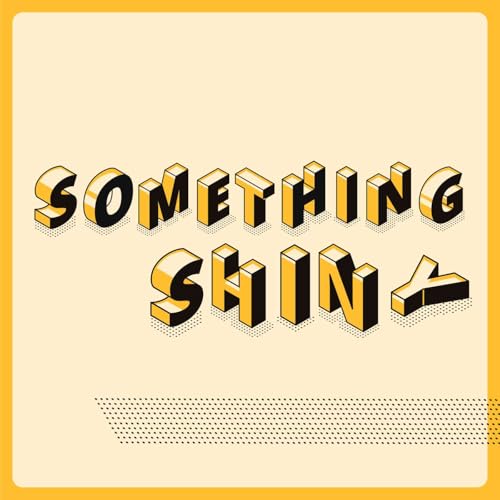Ever felt like you were doing everything "wrong" compared to everyone around you...like, thinking back to college, why did studying take you five environment changes and an all-nighter when your roommate just sat there and did it? If so, then this one's for you!
Jesse Sanchez, President of the Neurodiversity Alliance, joins hosts Isabelle Richards and David Kessler to talk about his journey from "wait, am I broken?" confusion in college to leading a national movement that's literally changing (and saving) lives through peer mentorship and community. And yes, we have the data to back that up.
Jesse gets incredibly real about what it was like to need accommodations for years without anyone explaining why, and how finding other neurodivergent people who just got it completely transformed the way he saw himself. They also get into what it actually looks like to unmask and take care of yourself in professional settings—like when Jesse collapsed on a couch between high-stakes donor meetings at the Neurodiversity Leadership Summit with Isabelle and David there. It was beautiful:) And why that kind of authentic nervous system regulation isn't weakness—it's literally the accommodation your body needs.
Here's what's coming your way:
- Jesse's origin story with the Neurodiversity Alliance (formerly Eye to Eye) and why peer mentorship is so powerful
- The actual published research showing how mentorship protects neurodivergent middle schoolers from depression and boosts self-esteem (statistically significant, baby!)
- Why lying down with your feet up is one of the best nervous system hacks—and the full parasympathetic nerd-out on why it works
- How finding your people can fundamentally shift your identity from "I'm broken" to "I'm just wired different—and that's actually amazing"
Go to TheNDAlliance.org to explore student chapters, scholarships, paid internships, and leadership opportunities for neurodivergent students across the U.S.
-------
Wait—What's That? Here are some of the terms mentioned in this episode explained:
Neurodiversity Alliance (formerly Eye to Eye): A national student-led organization creating clubs on middle school, high school, and college campuses where neurodivergent students mentor younger students, build community, and flex their leadership skills.
Neurodiversity Leadership Summit: An annual gathering where neurodivergent students, leaders, and advocates come together to learn, connect, and celebrate neurodiversity. This is where Jesse melted on the couch and we all fell a little more in love with authentic self-care.
Parasympathetic Nervous System (Rest and Digest): The part of your nervous system that helps you calm down and recover after being activated. Isabelle breaks down how lying with your feet up literally forces blood back to your internal organs and tells your body "hey, no tiger here!"
Fight, Flight, or Freeze: Your body's automatic stress response that sends blood to your extremities so you can run or fight. When you're chronically activated (hello, masking all day), you need help switching back to rest mode.
Vagus Nerve: A major nerve running from your brain to your gut that plays a huge role in calming your nervous system. Certain positions (like lying down) stimulate it and help you regulate. Science is cool.
Disability Accommodations: Adjustments like extra time, quiet spaces, or flexible deadlines that level the playing field. Jesse talks about how reframing these from "crutch" to "right" was life-changing.
Positive Identity Development: A core focus of the Neurodiversity Alliance's work—helping students integrate their neurodivergence into their identity in a way that feels empowering, not shameful.
Statistical Significance: Research-speak for "this didn't happen by accident." Jesse shares data showing mentored students had significantly lower depression and higher self-esteem compared to non-mentored students. The protective effect against depression? Huge.
-------
🎧 Follow Something Shiny: ADHD for more conversations that help you understand your ADHD and remind you—you were never too much.
 26 mins
26 mins 10 mins
10 mins Jan 14 202622 mins
Jan 14 202622 mins 32 mins
32 mins 20 mins
20 mins 23 mins
23 mins 24 mins
24 mins 27 mins
27 mins
